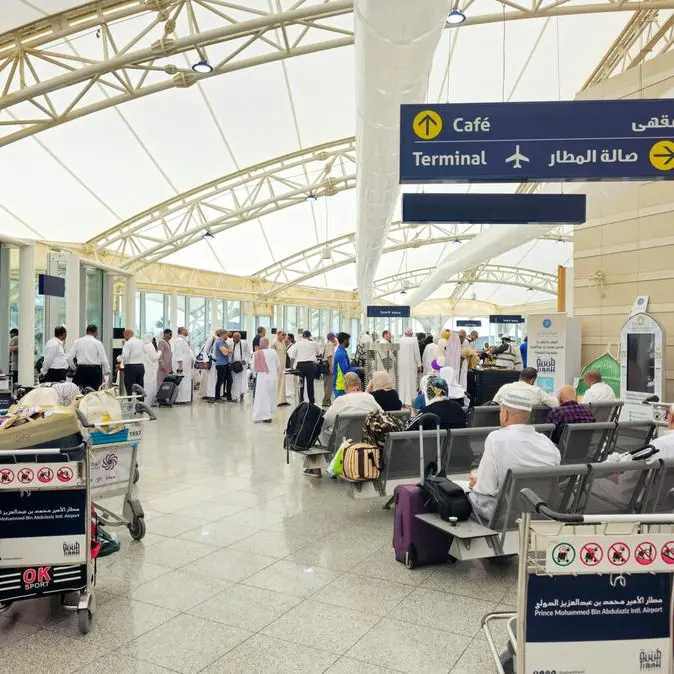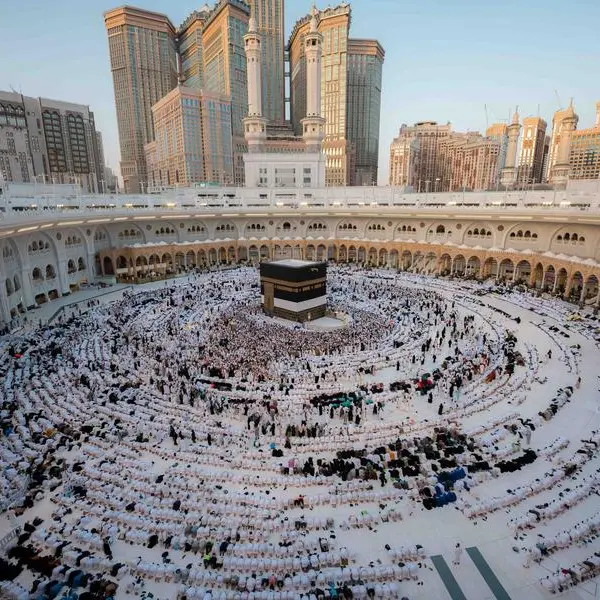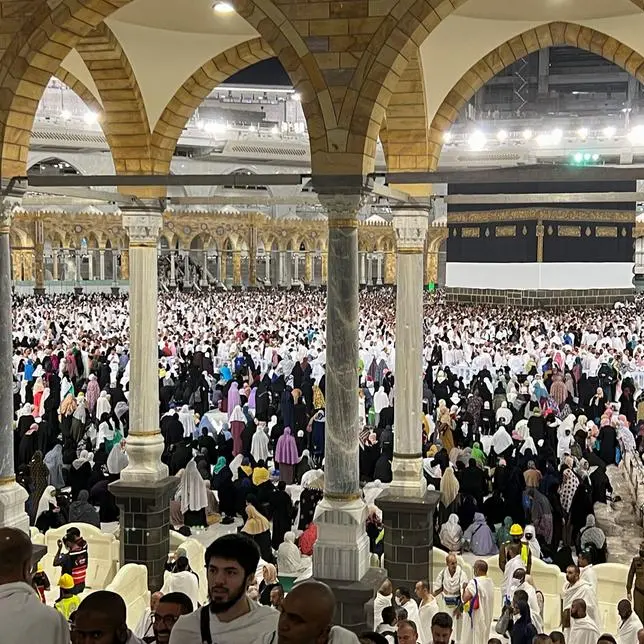PHOTO
For 38-year-old Mohammed Otoom, a Jordanian working as a manager at a clothing store in Sahara Mall in Sharjah, the last 10 nights of the holy month of Ramadan are special, in which he finds profound peace and significance.
He eagerly anticipates this sacred period each year, as he believes the last 10 days are an opportunity to build a strong connection to Allah during the night prayers, which are offered for a few hours across many mosques in the country.
These prayers are called Qiyam al Layl, which is translated to 'standing during the night', and hold a specific significance in Islam. It signifies the time devoted to prayer and remembrance of Allah, observed between the conclusion of the Isha prayers (last prayer at night) and the onset of Fajr (prayer at dawn).
Qiyam al-Layl holds profound significance for many Muslims around the world and they actively participate in this blessed practice. Muslims believe that they find themselves in a spiritual cleansing during this period.
'No distance between me and Allah'
“The last ten days of Ramadan are incredibly auspicious. It is during this time that I feel an unparalleled closeness to Allah. The act of prayer becomes a transcendent experience, and at night, I sense that there is no distance between myself and the Lord,” said Otoom.
“When I first embarked on this journey of nightly prayers during the last 10 days, I was struggling in my life. A friend guided me to the mosque, where I discovered solace in prolonged acts of devotion,” he added.
Since then, Otoom has found himself surrounded by a sense of blessing. “Engaging in these nocturnal prayers has been nothing short of a spiritual revelation. I have witnessed a massive shift in my life – a sense of peace and contentment that I get during every moment,” said Otoom.
As Otoom is the store manager, he logs in and logs out late for work. Like Ootom, many residents are mindful of their work obligations awaiting them the next morning.
The Prophet (PBUH) used to strive hard in worship, especially during these night in a way that he did not strive at any other times. Among the things he (PBUH) did were secluding himself in I’tikaaf (period of days when a person devotes themself solely to worship, staying away from worldly affairs) and seeking Laylat al-Qadr during this time.
Managing professional work
Everyone attending the night prayers has work or other responsibilities to attend to the next day, yet they embrace the challenge with commitment and trust in Allah. Through careful time management and prioritisation, these residents are striking a balance between their spiritual cleansing and daily duties.
“Everything we do is blessed by Allah the next day,” said Mohammed Saleh Al Hashmi, a 52-year-old businessman based in Dubai.
“These 10 days come once in 365 days. If I miss out on these prayers, I feel I have missed out on everything that matters to me the most. There is nothing like these prayers. The closeness that you feel between you and the lord, the cries, begging to forgive all your sins cannot be compared to other times. It is like the whole community is repenting forgiveness and ease in hereafter,” said Saleh, who has been observing these prayers for over 20 years.
Additional sleep during the day
Considering his business, Saleh said that he is out for work just a few hours, approximately 20 hours. “There are two weekends in the last 10 days of Ramadan. You can sleep during the day for the sleep that you have missed for prayers,” said Saleh.
“And the remaining six days, one has to be awake for just 18 hours. If one is willing, it is very easy to manage time by resting during the day,” he said.
Utilising comp offs
For Syed Ameen SM, nothing comes above these prayers. “Every year, the subordinates in my office are aware of my absence during the last 10 days of the holy month. I utilise my compensatory leave during this time to make the best of the time,” said Syed, who works at a telecom company in Dubai.
“This is the only time of the year during which I dedicate myself to spiritual healing and this is something that cannot be overlooked,” said Ameen.
Significance of Qiyam al-Layl
Sheikh Ayaz Housee, imam of NGS and Khateeb at Al Manar Islamic Centre said that these special prayers have the benefit of direct communication with Allah.
The Prophet Muhammad (PBUH) said: “Our Lord descends during the last third of each night to the lowest heaven, asking: ‘Who is calling me, so that I may answer him? Who is asking me, so that I may give to him? Who is seeking my forgiveness, so that I may forgive him? (Bukhari and Muslim)',” said Sheikh Housee.
He further mentioned that the prayers are nourishment for the soul and spiritual wellbeing, offering a unique opportunity for self-reflection and spiritual assessment.
“Greater reward and forgiveness. This is a sign of true faith and dedication that leads to Allah's mercy and forgiveness. The night prayers have a calming effect on the mind, reducing stress and anxiety. The practice encourages mindfulness and spiritual tranquillity, which are linked to improved mental health,” added Sheikh Ayaz.
Key advice for prayers
For those struggling to maintain consistency in performing Qiyam al-Layl prayers, a few key pieces of advice can help ease the journey. Dr Abdul Hameed, specialisation in fiqh (deep understanding of Islamic law) and shariah (Islamic law) said that the priority is the intention to stand for prayers.
“Firstly, it begins with intention. Firmly intending to wake up for Qiyaam al-Layl opens the door for Allah's assistance, making the task easier. Secondly, setting oneself up for success by going to bed early after Isha prayer is crucial. It's difficult to wake up for the night prayers if one is still awake late into the night, especially engaged in distractions like phone usage,” said Dr Abdul Hameed.
He further said that incorporating supplications before sleep and maintaining ablution can spiritually prepare one for the night of prayer. “Lastly, understanding the significance of Qiyam al-Layl can serve as motivation. Knowing that those who engage in these prayers are seeking Allah's pleasure, forgiveness, mercy, and protection can inspire perseverance and dedication. Ultimately, consistency in Qiyam al-Layl requires a combination of intention, discipline, and spiritual devotion,” added Dr Abdul Hameed.
Copyright © 2022 Khaleej Times. All Rights Reserved. Provided by SyndiGate Media Inc. (Syndigate.info).





















